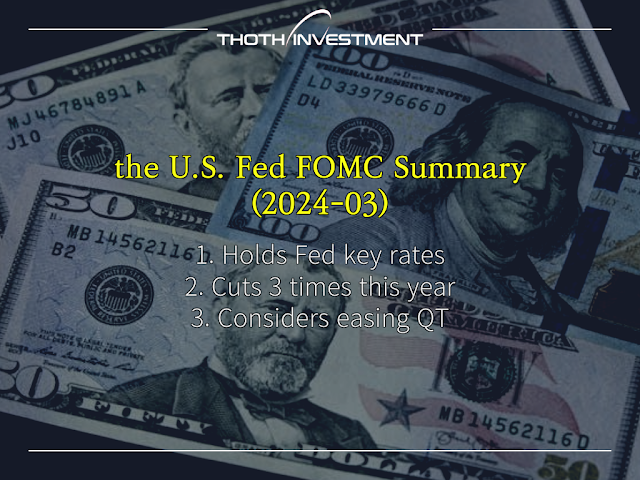BOJ to raise policy rate; Exit from negative Interest rates
BOJ to raise policy rate; Exit from negative Interest rates
Japan's central bank to hike rates for first time in 17 years... -0.1% → 0-0.1% expected
The BoJ is raising its benchmark interest rate for the first time in 17 years, Japan's Kyodo news agency reported. The central bank had been holding the benchmark rate at a negative rate (-0.10%), but with Japan also seeing inflation, it's likely to keep the benchmark rate at a positive rate.
 |
| BOJ to raise policy rate; Exit from negative Interest rates |
 |
| USD/JPY; stockcharts.com |
- Day 18, BOJ; rate hike expected
- 19-20, U.S. Fed; FOMC meeting ... expected to keep rates unchanged, watch for comments on when to cut rates
While the Japanese central bank's rate hike is expected to strengthen the Japanese yen, the U.S. Federal Reserve's delayed rate cut is expected to have less of an impact on the Japanese yen, as the U.S. dollar strengthens.
In the meantime, Japan has controlled interest rates below 1% for 10-year government bonds (*Yield Curve Control, YCC). We expect the Bank of Japan to lift the yield curve control at the same time as it raises the benchmark interest rate.
Japan to end massive stimulus?... BOJ struggles to deal with Japanese stocks
Japan's central bank has bought about 70 trillion yen ($630 trillion) worth of Japanese equity ETFs since 2010
Japan's central bank has engaged in monetary easing policies that are unprecedented in the world. They have negative interest rates, unlimited government bond purchases to control the yield curve, and even purchased Japanese stock ETFs.
The question is, what to do with the Japanese stock ETFs held by the BoJ?
The BoJ has hit the jackpot, so to speak. Recently, Japanese stocks have been hitting record highs, and the recovery of Japan's Nikkei 225 index from its bubble economy has produced massive returns.
The problem is, at some point, you'll need to sell your Japanese stocks, and that can cause volatility in the Japanese stock market.
We need to figure out when and how to minimize this.
Powered by, THOTH Investment



Comments
Post a Comment